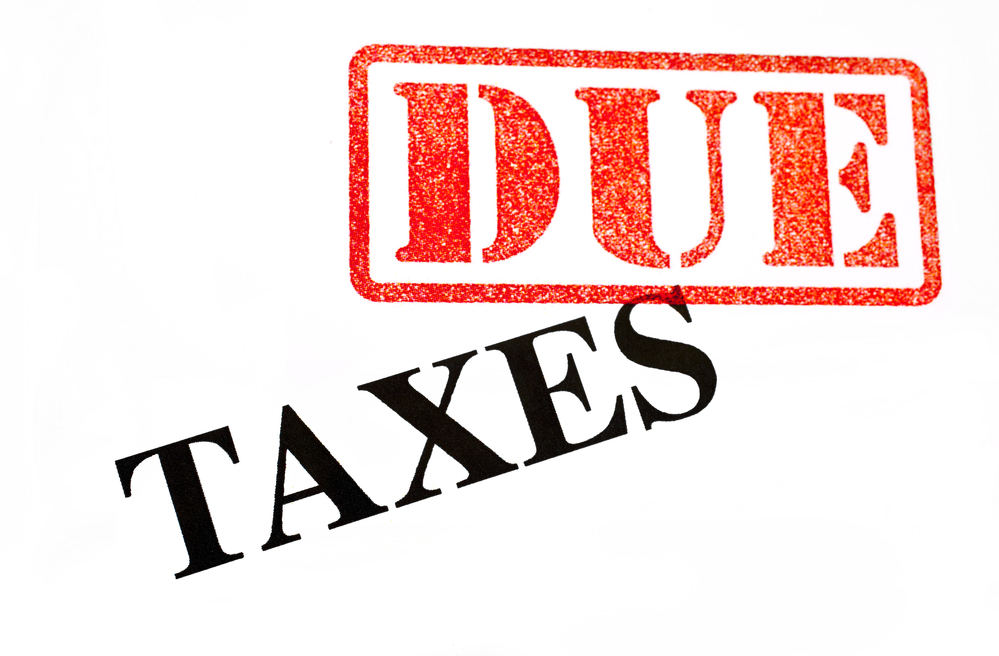You Didn't Pay Your Taxes When You Filed: Now What?
- May 01, 2023
 Filing your taxes is an important responsibility that should not be taken lightly. However, sometimes life gets in the way and you may find yourself in a situation where you filed your return, but didn’t send in the payment for what you owed. Perhaps you simply intended to submit payment later, after you cleared up some other financial responsibilities, or maybe you simply didn’t have the money to pay your tax bill at all. Whatever the reason, it's important to take action as soon as possible to minimize the impact his will have on your finances. Here’s what you should do if you didn't pay your taxes when you filed.
Filing your taxes is an important responsibility that should not be taken lightly. However, sometimes life gets in the way and you may find yourself in a situation where you filed your return, but didn’t send in the payment for what you owed. Perhaps you simply intended to submit payment later, after you cleared up some other financial responsibilities, or maybe you simply didn’t have the money to pay your tax bill at all. Whatever the reason, it's important to take action as soon as possible to minimize the impact his will have on your finances. Here’s what you should do if you didn't pay your taxes when you filed.
Assess the Damage
The first step in addressing an unpaid tax bill is to assess the damage. Determine the total amount owed, including any penalties and interest that may have accrued since the deadline passed. (Currently, the interest on your debt should be minimal, since we’re only a couple of weeks past the deadline. However, you will have to pay a late payment fee.) Review your tax return and check for any errors or omissions that may have contributed to the situation.
It's important to act quickly to avoid any further penalties and interest from accruing. The longer you wait to address the issue, the more you will owe.
Contact the IRS
Once you have assessed the damage, it's time to contact the IRS. This can be a daunting task, but it's important to address the issue head-on. The IRS is often much more willing to cooperate with taxpayers who are proactive about settling their tax debts, as opposed to those that wait for the IRS to start trying to collect on the debt—perhaps in the hopes that their bill will simply go unnoticed. Contact the IRS as soon as possible to discuss your options for resolving the unpaid taxes.
The IRS will typically offer an installment agreement or a payment plan that allows you to make monthly payments over time. They may also offer an Offer in Compromise program, which allows you to settle your tax debt for less than what you owe; however, these are awarded much less frequently and are more difficult to qualify for.
Penalties and Interest
We mentioned penalties and interest earlier, but it’s worth providing some more information on this topic here, since it can have a big impact on your total payment amount. It's important to note that penalties and interest will continue to accrue until your tax debt is paid in full. The longer you wait to pay, the more you will owe. Getting on an installment plan does not eliminate those fees or interest; they will continue to accrue, even as you make your monthly payments. So, it's important to work with the IRS to come up with a plan that fits your budget and allows you to pay off your tax debt as quickly as possible.
Don’t Ignore the Problem
Ignoring the problem will only make it worse. If you fail to pay your taxes, the IRS can take a number of actions to collect the debt. This may include garnishing your wages, placing a lien on your property, or seizing your bank accounts. It's important to work with the IRS to avoid these consequences. Again, they are typically very willing to work with taxpayers who are proactive about settling their debts. By taking action and working with the IRS, you can minimize the impact of unpaid taxes on your financial future.
Hiring a Professional
If you are overwhelmed by the process of dealing with the IRS, you may want to consider hiring a tax professional. A tax professional can help you navigate the complex process of resolving unpaid taxes and work with the IRS on your behalf.
An experienced tax professional can help you understand your options, guide you through applying for an IRS payment plan, and negotiate with the IRS to minimize the impact on your financial future. They can also provide guidance on how to avoid similar issues in the future.
At the IRS Advocates, we are committed to helping taxpayers resolve their tax issues and find a solution that fits their unique situation. Contact us today to get professional assistance settling your tax debts and getting out from under the burden of tax debt. Don't wait for your current tax debt to balloon out o control—take action today to protect your financial future.
STOP THE IRS!
Settle for less & Protect your assets
Never Call the IRS without Speaking with our Pros First!